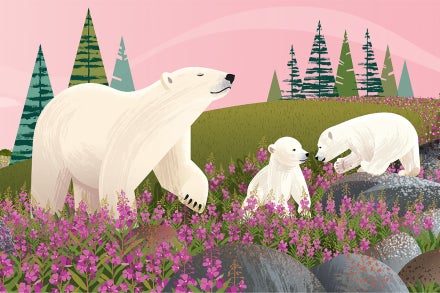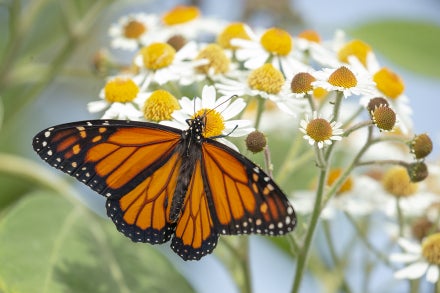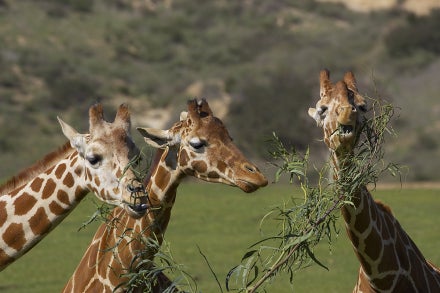Image

Zoo InternQuest is a seven-week career exploration program for San Diego County high school juniors and seniors. Students have the unique opportunity to meet professionals working for the San Diego Zoo, Safari Park, and Institute for Conservation Research, learn about their jobs and then blog about their experience online. Follow their adventures here on the Zoo’s Website!
 This week, interns had the opportunity to go to the San Diego Zoo’s Safari Park and take a ride out into the Asian Savannah and African Plains exhibits. They observed rhinos, oryx, antelope, and more while out with Senior Mammal Keepers Roger Petersen and Torrey Pillsbury. These two have been working for the Safari Park for over 25 years and care for the mammals residing in the northern end of the Park. Mr. Petersen and Ms. Pillsbury were happy to present an in depth look at some of the various animals the Park has to offer and even allowed the interns the chance to feed some of the resident rhinos and giraffes.
Many of the animals the interns saw while out in the Park are endangered. The Safari Park stands as one of the last habitats for animals whose natural homes have disappeared due to deforestation, human expansion, and poaching. An iconic example of this is the northern white rhinoceros; only three northern white rhinos remain in the wild. The Safari Park used to have three of its own, which they tried to breed to no avail. Unfortunately, the rhinos passed away, but Safari Park staff were able to successfully collect genetic samples from the rhinos. Now there are hopes to bring the subspecies back by mixing northern white rhino with its southern cousin. If this can be done through many successive generations, then the offspring might be genetically similar enough to the northern white rhino to be considered the same species. Another species of interest in the Safari Park is the Père David's deer, which for a period of time was completely extinct in the wild. These Chinese deer lost most of their habitat as Chinese civilization flourished, until there was nothing left. Only a small population survived in a private collection which was actually used to revive the species, but the Père David's deer is still only present in captivity today. Zoos across the world house this species but the deer may never roam its natural habitat again due to deforestation. Without institutions like the Safari Park making an effort to house endangered species, many wouldn’t have anywhere to live. Preserving the genetic diversity of the planet is very important and the Safari Park serves as an important part of this effort.The Safari Park also serves the important role of propagating the endangered species it holds. The Association of Zoos and Aquariums has developed a program called the Species Survival Plan which is designed to provide advice on which specific animals to breed together to promote genetic diversity. Reviving a species is a major goal of conservation institutes everywhere so the Safari Park is happy to listen to the suggestions of the Species Survival Plan in order to successfully breed endangered species.
There are many different ways that someone could get involved with the Safari Park in order to promote the Park’s conservation message. Teenagers can join the Conservation Corps hosted by the Safari Park; in this program, teens spend at least one day a month teaching the public about endangered species while sharing conservation success stories. Another day is spent on a conservation-related project to help wildlife. There are also volunteer opportunities involving garden maintenance for the Park and the Institute for Conservation Research nearby often has projects that need volunteers. If hands-on helping isn’t your style, there are always indirect ways to help. The Safari Park takes donations specifically for its wildlife conservancy program and the Institute for Conservation Research has a program where you “adopt” an endangered animal through a small donation every month. Small acts like that really add up and the Safari Park appreciates any help it can get when it comes to ending extinction..
Ethan, Conservation Team
Week Six, Fall Session 2016
This week, interns had the opportunity to go to the San Diego Zoo’s Safari Park and take a ride out into the Asian Savannah and African Plains exhibits. They observed rhinos, oryx, antelope, and more while out with Senior Mammal Keepers Roger Petersen and Torrey Pillsbury. These two have been working for the Safari Park for over 25 years and care for the mammals residing in the northern end of the Park. Mr. Petersen and Ms. Pillsbury were happy to present an in depth look at some of the various animals the Park has to offer and even allowed the interns the chance to feed some of the resident rhinos and giraffes.
Many of the animals the interns saw while out in the Park are endangered. The Safari Park stands as one of the last habitats for animals whose natural homes have disappeared due to deforestation, human expansion, and poaching. An iconic example of this is the northern white rhinoceros; only three northern white rhinos remain in the wild. The Safari Park used to have three of its own, which they tried to breed to no avail. Unfortunately, the rhinos passed away, but Safari Park staff were able to successfully collect genetic samples from the rhinos. Now there are hopes to bring the subspecies back by mixing northern white rhino with its southern cousin. If this can be done through many successive generations, then the offspring might be genetically similar enough to the northern white rhino to be considered the same species. Another species of interest in the Safari Park is the Père David's deer, which for a period of time was completely extinct in the wild. These Chinese deer lost most of their habitat as Chinese civilization flourished, until there was nothing left. Only a small population survived in a private collection which was actually used to revive the species, but the Père David's deer is still only present in captivity today. Zoos across the world house this species but the deer may never roam its natural habitat again due to deforestation. Without institutions like the Safari Park making an effort to house endangered species, many wouldn’t have anywhere to live. Preserving the genetic diversity of the planet is very important and the Safari Park serves as an important part of this effort.The Safari Park also serves the important role of propagating the endangered species it holds. The Association of Zoos and Aquariums has developed a program called the Species Survival Plan which is designed to provide advice on which specific animals to breed together to promote genetic diversity. Reviving a species is a major goal of conservation institutes everywhere so the Safari Park is happy to listen to the suggestions of the Species Survival Plan in order to successfully breed endangered species.
There are many different ways that someone could get involved with the Safari Park in order to promote the Park’s conservation message. Teenagers can join the Conservation Corps hosted by the Safari Park; in this program, teens spend at least one day a month teaching the public about endangered species while sharing conservation success stories. Another day is spent on a conservation-related project to help wildlife. There are also volunteer opportunities involving garden maintenance for the Park and the Institute for Conservation Research nearby often has projects that need volunteers. If hands-on helping isn’t your style, there are always indirect ways to help. The Safari Park takes donations specifically for its wildlife conservancy program and the Institute for Conservation Research has a program where you “adopt” an endangered animal through a small donation every month. Small acts like that really add up and the Safari Park appreciates any help it can get when it comes to ending extinction..
Ethan, Conservation Team
Week Six, Fall Session 2016
 This week, interns had the opportunity to go to the San Diego Zoo’s Safari Park and take a ride out into the Asian Savannah and African Plains exhibits. They observed rhinos, oryx, antelope, and more while out with Senior Mammal Keepers Roger Petersen and Torrey Pillsbury. These two have been working for the Safari Park for over 25 years and care for the mammals residing in the northern end of the Park. Mr. Petersen and Ms. Pillsbury were happy to present an in depth look at some of the various animals the Park has to offer and even allowed the interns the chance to feed some of the resident rhinos and giraffes.
Many of the animals the interns saw while out in the Park are endangered. The Safari Park stands as one of the last habitats for animals whose natural homes have disappeared due to deforestation, human expansion, and poaching. An iconic example of this is the northern white rhinoceros; only three northern white rhinos remain in the wild. The Safari Park used to have three of its own, which they tried to breed to no avail. Unfortunately, the rhinos passed away, but Safari Park staff were able to successfully collect genetic samples from the rhinos. Now there are hopes to bring the subspecies back by mixing northern white rhino with its southern cousin. If this can be done through many successive generations, then the offspring might be genetically similar enough to the northern white rhino to be considered the same species. Another species of interest in the Safari Park is the Père David's deer, which for a period of time was completely extinct in the wild. These Chinese deer lost most of their habitat as Chinese civilization flourished, until there was nothing left. Only a small population survived in a private collection which was actually used to revive the species, but the Père David's deer is still only present in captivity today. Zoos across the world house this species but the deer may never roam its natural habitat again due to deforestation. Without institutions like the Safari Park making an effort to house endangered species, many wouldn’t have anywhere to live. Preserving the genetic diversity of the planet is very important and the Safari Park serves as an important part of this effort.The Safari Park also serves the important role of propagating the endangered species it holds. The Association of Zoos and Aquariums has developed a program called the Species Survival Plan which is designed to provide advice on which specific animals to breed together to promote genetic diversity. Reviving a species is a major goal of conservation institutes everywhere so the Safari Park is happy to listen to the suggestions of the Species Survival Plan in order to successfully breed endangered species.
There are many different ways that someone could get involved with the Safari Park in order to promote the Park’s conservation message. Teenagers can join the Conservation Corps hosted by the Safari Park; in this program, teens spend at least one day a month teaching the public about endangered species while sharing conservation success stories. Another day is spent on a conservation-related project to help wildlife. There are also volunteer opportunities involving garden maintenance for the Park and the Institute for Conservation Research nearby often has projects that need volunteers. If hands-on helping isn’t your style, there are always indirect ways to help. The Safari Park takes donations specifically for its wildlife conservancy program and the Institute for Conservation Research has a program where you “adopt” an endangered animal through a small donation every month. Small acts like that really add up and the Safari Park appreciates any help it can get when it comes to ending extinction..
Ethan, Conservation Team
Week Six, Fall Session 2016
This week, interns had the opportunity to go to the San Diego Zoo’s Safari Park and take a ride out into the Asian Savannah and African Plains exhibits. They observed rhinos, oryx, antelope, and more while out with Senior Mammal Keepers Roger Petersen and Torrey Pillsbury. These two have been working for the Safari Park for over 25 years and care for the mammals residing in the northern end of the Park. Mr. Petersen and Ms. Pillsbury were happy to present an in depth look at some of the various animals the Park has to offer and even allowed the interns the chance to feed some of the resident rhinos and giraffes.
Many of the animals the interns saw while out in the Park are endangered. The Safari Park stands as one of the last habitats for animals whose natural homes have disappeared due to deforestation, human expansion, and poaching. An iconic example of this is the northern white rhinoceros; only three northern white rhinos remain in the wild. The Safari Park used to have three of its own, which they tried to breed to no avail. Unfortunately, the rhinos passed away, but Safari Park staff were able to successfully collect genetic samples from the rhinos. Now there are hopes to bring the subspecies back by mixing northern white rhino with its southern cousin. If this can be done through many successive generations, then the offspring might be genetically similar enough to the northern white rhino to be considered the same species. Another species of interest in the Safari Park is the Père David's deer, which for a period of time was completely extinct in the wild. These Chinese deer lost most of their habitat as Chinese civilization flourished, until there was nothing left. Only a small population survived in a private collection which was actually used to revive the species, but the Père David's deer is still only present in captivity today. Zoos across the world house this species but the deer may never roam its natural habitat again due to deforestation. Without institutions like the Safari Park making an effort to house endangered species, many wouldn’t have anywhere to live. Preserving the genetic diversity of the planet is very important and the Safari Park serves as an important part of this effort.The Safari Park also serves the important role of propagating the endangered species it holds. The Association of Zoos and Aquariums has developed a program called the Species Survival Plan which is designed to provide advice on which specific animals to breed together to promote genetic diversity. Reviving a species is a major goal of conservation institutes everywhere so the Safari Park is happy to listen to the suggestions of the Species Survival Plan in order to successfully breed endangered species.
There are many different ways that someone could get involved with the Safari Park in order to promote the Park’s conservation message. Teenagers can join the Conservation Corps hosted by the Safari Park; in this program, teens spend at least one day a month teaching the public about endangered species while sharing conservation success stories. Another day is spent on a conservation-related project to help wildlife. There are also volunteer opportunities involving garden maintenance for the Park and the Institute for Conservation Research nearby often has projects that need volunteers. If hands-on helping isn’t your style, there are always indirect ways to help. The Safari Park takes donations specifically for its wildlife conservancy program and the Institute for Conservation Research has a program where you “adopt” an endangered animal through a small donation every month. Small acts like that really add up and the Safari Park appreciates any help it can get when it comes to ending extinction..
Ethan, Conservation Team
Week Six, Fall Session 2016



